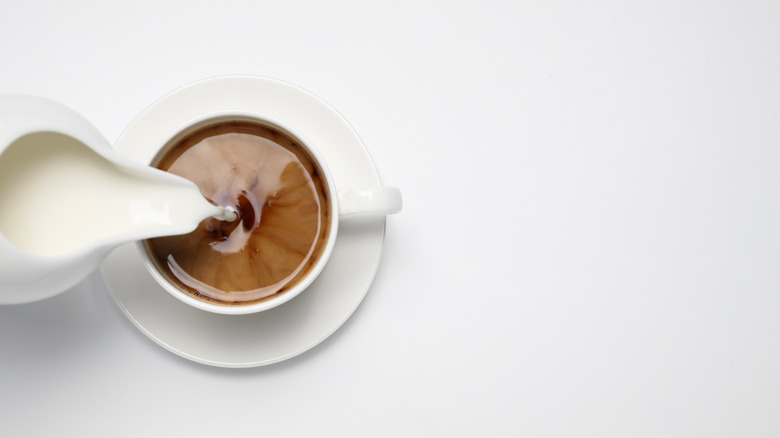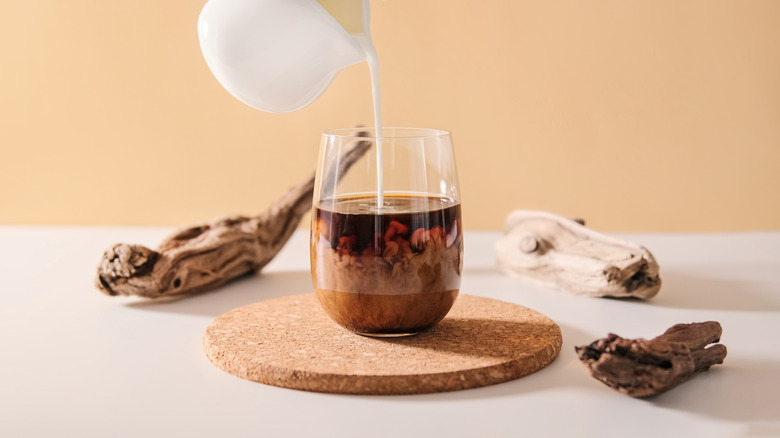The Real Reason Cold Cream Doesn't Affect The Temperature Of Your Coffee
When it comes to coffee, there's probably a good chance that the phrase, "Don't talk to me before I've had it," is uttered all around the world. Per BBC News, Brazil is the top global coffee producer, churning out more than 50 million bags per year, and Finland is the top drinker at 12.5 kg per person annually (that's nearly 28 pounds). But it's no secret that America loves coffee, too. In 2012, The Washington Post reported that New Yorkers drank roughly seven times as much coffee as folks from any other state. Per Urban Bean Coffee, a morning cuppa joe is part of the daily ritual for 64% of U.S. adults. Statista reports that 44% of those drink 2-3 cups of coffee every day.
According to Urban Bean Coffee, 35% of coffee fans drink it black. For the rest of us, there are as many variations of creamer out there as there are types of coffee. Whether you prefer milk, half-and-half, heavy cream, non-dairy, or flavored creamer, there's one factor that might be on your mind: Temperature. On a cold day, you might hesitate to add cold creamer to your hot coffee because you might wonder if it will cool down too much. Think again. Here's the real reason cold cream doesn't affect the temperature of your coffee.
Creamer lightens and thickens your coffee
Pouring cold cream into coffee can sometimes cause the creamer to coagulate due to the shock of the sudden temperature difference, reports Coffee Detective. Yet the temperature of the actual coffee itself won't cool down too much in the presence of cold cream. Why is that?
According to Modernist Cuisine, once you stir that cream into your coffee, it'll actually cool down 20% slower than black coffee and there's a scientific reason for it called the Stefan-Boltzmann Law (per Britannica). The Law states that "hotter surfaces radiate heat faster." Per the Law, since black coffee is darker, it lets off heat more quickly than lighter coffee. By adding cream into black coffee, thereby lightening its color, it'll retain its current temperature for longer after the cream has been added. Even though that initial splash of cold cream might cool your coffee down at first, it'll still emit heat more quickly in the long run if you leave it black.
Higher viscosity also promotes temperature retention. Since thicker liquids cool down more slowly than thinner liquids, that added cream will keep the heat in like a little coffee blanket. Different types of creamers will add different thicknesses to your brew, thereby affecting how quickly it cools. Heavy cream is denser than regular milk, states Third Wave Coffee Roasters, so it'll keep the heat in your coffee even longer.

